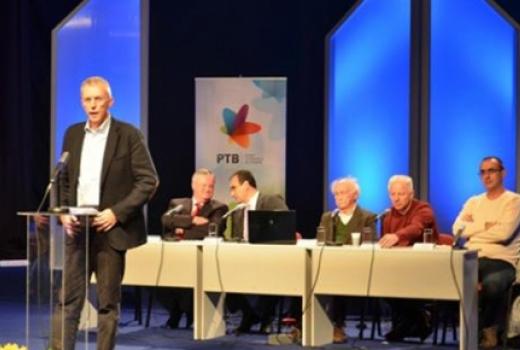RT Vojvodina – a regional multilingual and multicultural public broadcaster or a public burden?

RT Vojvodina – a regional multilingual and multicultural public broadcaster or a public burden?
Today in Serbia there are two public broadcasters that are in terms of their status equal under the law, but in practice very much unequal.
These are the Radio Television of Serbia (RTS) and the Radio Television of Vojvodina (RTV). The public service broadcaster of Vojvodina, RTV, broadcasts in ten different languages (in Serbian and in nine languages of national minorities) on its two TV and three radio channels. On a daily basis, RTV broadcasts 120 hours of program, 83 percent of which is independently produced and premiered every day. It is the successor of Radio Television of Novi Sad, a Yugoslavian multilingual media outlet founded by the National Assembly of Vojvodina in 1946, first as Radio Novi Sad, and later in 1971 the Parliament of Vojvodina founded the Radio Television of Novi Sad.
In July and August 2013 the public was shaken by an announcement stating that due to enormous debts RTV will have to pull its signal off the air. For the first time in its long history (67 years), the media outlet is threatened by shutdown after the production process has been brought to a collapse due to lack of funds, while the staff has not received any paychecks for the last couple of months.
The reasons for this may be found not only in the ongoing economic crisis which has depleted most Serbian media, but also in the fact that in the last couple of months the Serbian public was told that license fee for this media outlet will be canceled, after which citizens decided to stop paying it on their own. In May 2013, First Deputy Prime Minister Aleksandar Vučić posted on his twitter feed that license fee for public service broadcasting will be canceled. Four months after the statement, the subscription fee has still not been canceled, but the number of citizens paying it has dropped drastically. An additional problem for the public broadcaster is that it did not get the already reduced amount of money that it was supposed to get from subscription fee due to the transfer of jurisdiction from Elektrovojvodina to the newly established EPS, the Electric Power Supplier of Serbia. After gaining jurisdiction, EPS did not pay the full amount of money earmarked for public broadcasters, but rather just one part that was “left over” from the electricity bills.





 Continue reading "RT Vojvodina – a regional multilingual and multicultural public broadcaster or a public burden?" (Dubravka Valić- Nedeljković).
Continue reading "RT Vojvodina – a regional multilingual and multicultural public broadcaster or a public burden?" (Dubravka Valić- Nedeljković).